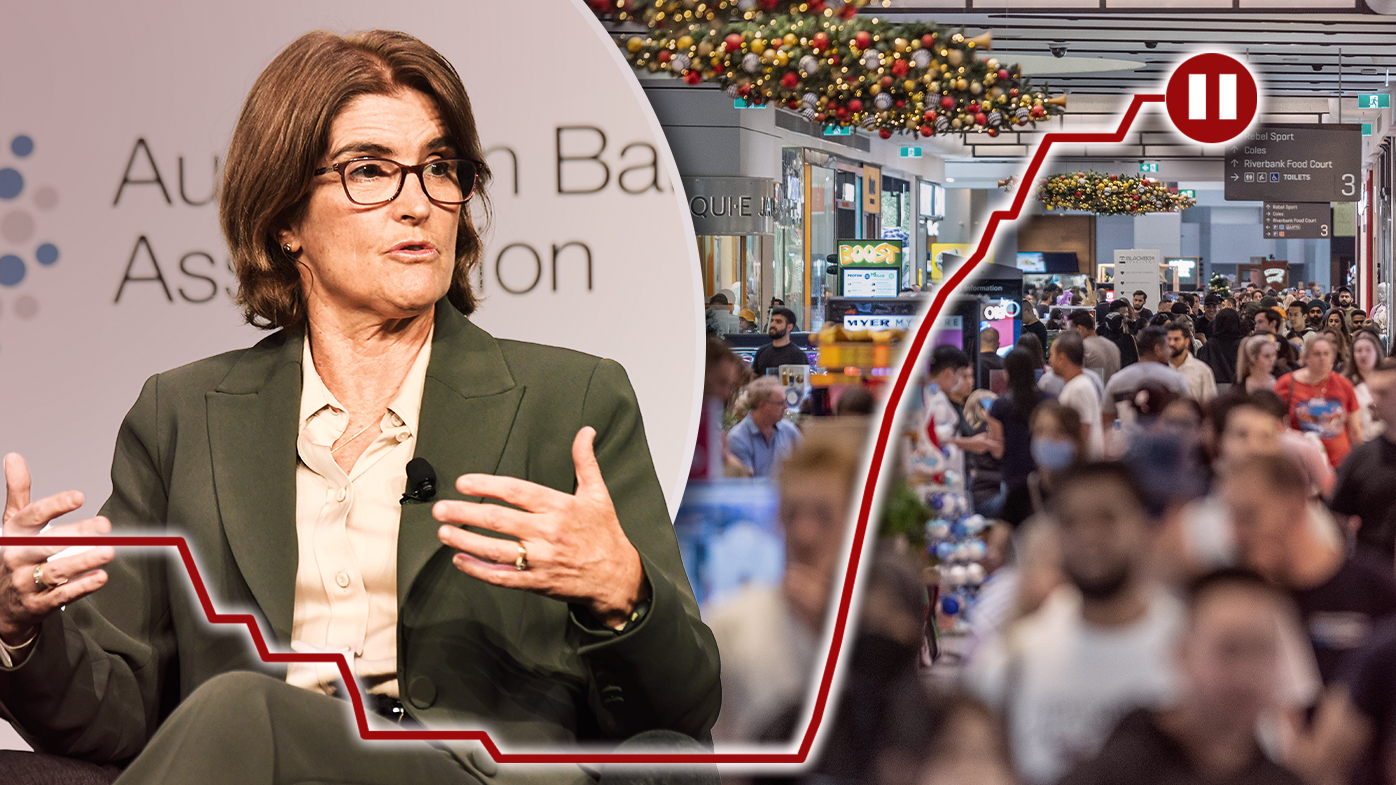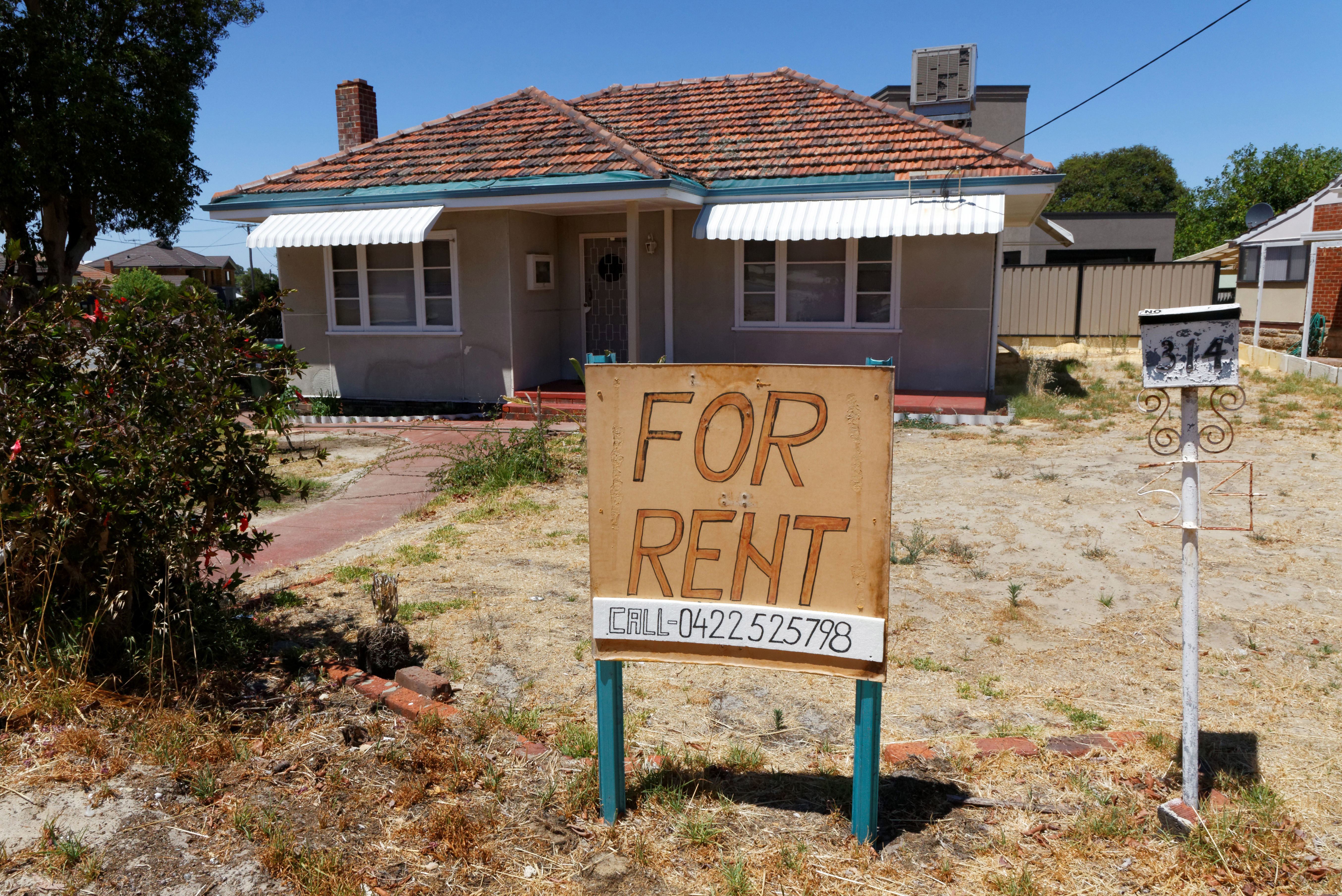The Reserve Bank of Australia (RBA) has kept interest rates on hold in December, sparing borrowers of a sixth interest rate rise in 2023.
Meeting at its Martin Place headquarters this afternoon, the RBA board decided to keep the official cash rate target steady at 4.35 per cent, citing a wealth of data that showed inflation in Australia is cooling.
The news will come as a relief to thousands of households, which on average have paid more than $24,000 extra in interest as a result of 13 interest rate rises since May 2022.
READ MORE: Australia's interest rate hikes are over, global body predicts
RBA Governor Michele Bullock said the board was closely watching domestic economic conditions and did not rule out further changes to the cash rate in 2024.
"Whether further tightening of monetary policy is required to ensure that inflation returns to target in a reasonable timeframe will depend upon the data and the evolving assessment of risks," Bullock said.
"In making its decisions, the Board will continue to pay close attention to developments in the global economy, trends in domestic demand, and the outlook for inflation and the labour market.
"The Board remains resolute in its determination to return inflation to target and will do what is necessary to achieve that outcome."
She said "uncertainties" still remain around the global economy.
"There are still significant uncertainties around the outlook. While there have been encouraging signs on goods inflation abroad, services price inflation has remained persistent and the same could occur in Australia," Bullock said in her monetary statement.
"There also remains a high level of uncertainty around the outlook for the Chinese economy and the implications of the conflicts abroad. Domestically, there are uncertainties regarding the lags in the effect of monetary policy and how firms' pricing decisions and wages will respond to the slower growth in the economy at a time when the labour market remains tight.
"The outlook for household consumption also remains uncertain, with many households experiencing a painful squeeze on their finances, while some are benefiting from rising housing prices, substantial savings buffers and higher interest income."
READ MORE: Feeling the pinch? The RBA boss reckons you're in a 'good position'
Anneke Thompson, chief economist at CreditorWatch, said the RBA's next move will largely depend on whether Australians spend or scrimp in the busy Christmas period.
"Borrowers today breathed a sigh of relief as the Reserve Bank of Australia (RBA) today chose to keep the cash rate steady at 4.35 per cent in its final meeting until February," Thompson said.
"Stagnating retail sales, slowing inflation and a rising number of unemployed job hunters all combined to convince the RBA that current monetary policy settings are sufficient to slow the economy.
"The strength of retail sales over the Christmas period and the volume of summer holiday spending will help inform the RBA's next move at the February 2024 meeting."
Research by comparison service RateCity.com.au found the average borrower with a $500,000 loan at the start of the hikes will have paid an estimated $24,598 more in interest charges in the twenty months between May 2022 and December 2023.
"The RBA has made it clear another rate hike is not out of the question. A prolonged spell of elevated spending could ruffle inflation, and push the Board back into hiking territory," said RateCity.com.au research director Sally Tindall.
"COVID was tough on many families, but 2023 has been even harder financially for a lot of Australians who have had their back up against the wall due to the RBA hikes.
"The RBA did not expect the size and scale of the hikes it ended up delivering in the last year and a half, and nor did millions of borrowers across the country."
READ MORE: Where house prices will rise and fall in 2024
As the economic reverberation of the fastest hiking cycle in Australian history continues, many experts are arguing that Australians with a mortgage aren't the only ones struggling to make ends meet.
"Finder's Consumer Sentiment Tracker shows 42 per cent of renters are currently struggling to pay their rent, which is higher than the 37 per cent of mortgage holders in the same position," Graham Cooke, head of consumer research at Finder, said.
"Much of the conversation around rate rises focuses on homeowners, but it's actually renters who are proportionally feeling the impact more, as they deal with flow-on rent increases.
"Further rent increases won't be welcome news for those struggling."





